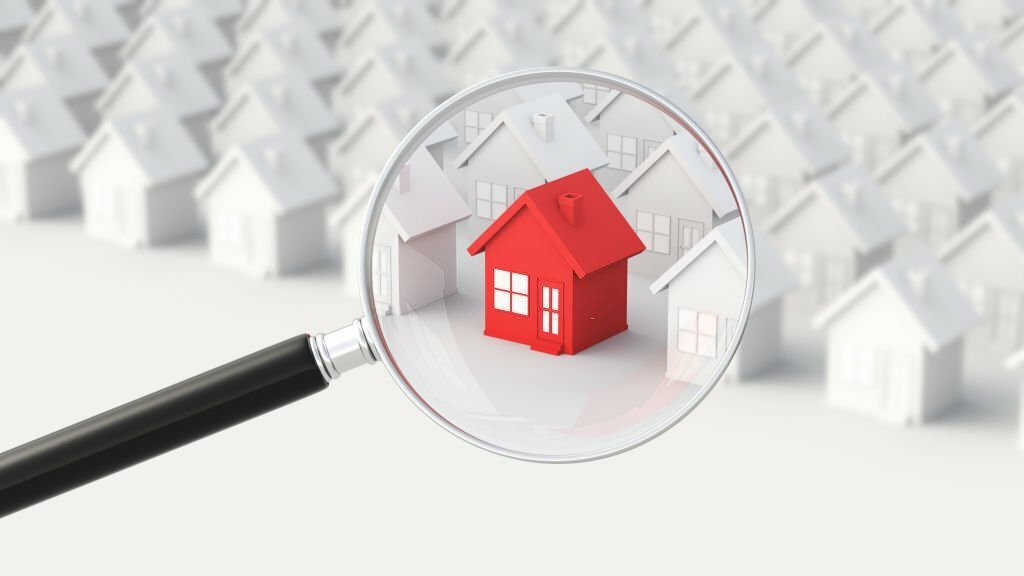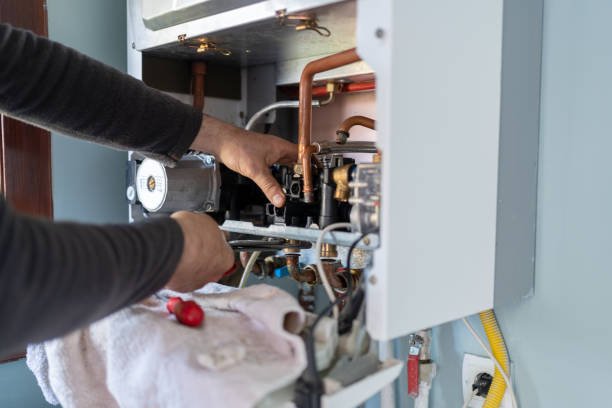If you’re in the market for a new home in the Gateway to the West, you might be tempted to cut corners to save time and money. But let me tell you, skipping a home inspection in St Louis is a decision you might regret for years to come. Whether you’re a first-time homebuyer or a seasoned property investor, a thorough home inspection is your best friend in the real estate game. Let’s dive into why it’s so crucial and what you might be risking if you decide to forego this essential step.
The Hidden Dangers of Skipping a Home Inspection
You know how they say, “Don’t judge a book by its cover”? Well, the same goes for houses. That charming Victorian in Lafayette Square or that modern loft downtown might look picture-perfect, but underneath that fresh coat of paint could be a whole host of issues just waiting to drain your bank account.
Structural Issues: The Silent Killers
One of the most significant risks of skipping a home inspection is missing out on potential structural problems. These aren’t just minor inconveniences; we’re talking about issues that could compromise the entire integrity of your home.
Foundation Woes
St. Louis has its fair share of older homes, and with age comes the potential for foundation issues. The city’s clay-heavy soil can expand and contract with moisture changes, putting stress on foundations. An inspector might spot:
- Cracks in the foundation walls
- Uneven floors
- Doors and windows that don’t close properly
- Gaps between walls and ceilings
Missing these signs could mean you’re buying a home that’s literally on shaky ground. Fixing foundation problems can cost tens of thousands of dollars, turning your dream home into a financial nightmare.
Roof Troubles
Another biggie is roof issues. St. Louis weather can be tough on roofs, with hot summers, cold winters, and everything in between. A good inspector will check for:
- Missing or damaged shingles
- Signs of water damage in the attic
- Proper ventilation
- The overall age and condition of the roof
A new roof can easily set you back $10,000 or more, depending on the size and materials. That’s not exactly pocket change, is it?
Plumbing and Electrical: The Hidden Systems
Out of sight, out of mind – until something goes wrong. Plumbing and electrical systems are the lifeblood of your home, and problems here can range from annoying to downright dangerous.
Plumbing Predicaments
St. Louis has some neighborhoods with older plumbing systems that might be on their last legs. An inspector will look for:
- Outdated pipes (like galvanized steel or polybutylene)
- Signs of water damage or mold
- Proper water pressure
- Functioning water heater
Imagine moving into your new place only to find out you need to repipe the entire house. Talk about a wet blanket on your homeownership excitement!
Electrical Hazards
With older homes, you might be dealing with outdated electrical systems that aren’t up to modern codes. A home inspector will check for:
- Knob-and-tube wiring (common in pre-1950s homes)
- Overloaded circuits
- Proper grounding
- GFCI outlets in kitchens and bathrooms
Electrical issues aren’t just expensive to fix; they’re also major fire hazards. Skipping an inspection could mean putting your family’s safety at risk.
The St. Louis Special: Local Issues to Watch For
Every city has its quirks, and St. Louis is no exception. Some specific issues are more common in the Gateway City that a good home inspector will be on the lookout for.
Dealing with Asbestos and Lead
St. Louis has a rich history, but with that comes the potential for some not-so-great building materials of the past.
Asbestos: The Hidden Hazard
Many homes built before the 1980s used asbestos in insulation, floor tiles, and other materials. While it’s not dangerous if undisturbed, any renovation work could release harmful fibers into the air. A home inspector can identify potential asbestos-containing materials, saving you from a health hazard and costly removal down the line.
Lead Paint: A Colorful Problem
Homes built before 1978 might have lead-based paint lurking under newer layers. This is especially concerning if you have young children, as lead exposure can cause serious health issues. An inspection can reveal the presence of lead paint, allowing you to make an informed decision about remediation before you move in.
Radon: The Invisible Threat
Radon is a naturally occurring radioactive gas that can seep into homes from the ground. It’s odorless, colorless, and the second leading cause of lung cancer in the United States. Some areas of St. Louis County have higher radon levels than others, making testing crucial.
A home inspector can perform a radon test as part of the inspection process. This simple step could be a lifesaver, as prolonged exposure to high radon levels can have serious health consequences.
Termites and Other Pests: Tiny Invaders, Big Problems
St. Louis’s climate is quite inviting for termites and other wood-destroying insects. These little critters can cause major structural damage if left unchecked.
A thorough home inspection includes looking for signs of pest infestation, such as:
- Wood damage in basements and crawl spaces
- Mud tubes on exterior walls
- Discarded wings near windows and doors
- Hollow-sounding wood when tapped
Catching a pest problem early can save you thousands in repair costs and prevent the spread of damage throughout your home.
The Hidden Value of a Home Inspection
Now that we’ve covered some of the major risks of skipping a home inspection, let’s talk about the positive side. A good inspection doesn’t just protect you from potential disasters; it can also provide valuable information and even save you money in the long run.
Negotiation Power
Knowledge is power, especially in real estate negotiations. If the inspection turns up issues, you have several options:
- Ask the seller to fix the problems before closing
- Negotiate a lower price to account for necessary repairs
- Request a credit at closing to handle the repairs yourself
- Walk away from the deal if the issues are too severe
Without an inspection, you’re negotiating in the dark. With one, you’ve got solid facts to back up your requests.
Future Planning
Even if the inspection doesn’t reveal any major issues, it gives you a roadmap for future maintenance and upgrades. You’ll know:
- The age and condition of major systems and appliances
- Areas that might need attention in the coming years
- Potential upgrades to improve energy efficiency
This information helps you budget and plan for the future, avoiding surprise expenses down the road.
Peace of Mind
Let’s face it: buying a home is stressful. There are so many unknowns, and you’re making one of the biggest financial decisions of your life. A thorough home inspection can provide peace of mind, knowing that you’ve done your due diligence and understand exactly what you’re getting into.
What to Expect During a Home Inspection
So, you’re convinced that a home inspection is the way to go. Great! But what exactly happens during this process? Let’s break it down.
The Inspection Process
A typical home inspection in St. Louis takes about 2-3 hours, depending on the size and age of the home. The inspector will examine:
- Exterior: Foundation, siding, roof, gutters, and drainage
- Interior: Walls, floors, ceilings, windows, and doors
- Systems: Electrical, plumbing, HVAC
- Attic and Basement: Insulation, ventilation, signs of water damage
- Safety features: Smoke detectors, carbon monoxide detectors
Your Role in the Inspection
While the inspector does their thing, you’re not just a passive bystander. This is your chance to:
- Ask questions about anything you’re unsure of
- Point out any specific concerns you have
- Learn about the home’s systems and maintenance needs
Don’t be shy – a good inspector will welcome your questions and involvement in the process.
The Inspection Report
After the inspection, you’ll receive a detailed report outlining all findings. This report will include:
- Descriptions of the home’s major systems and their condition
- Photos of any issues or areas of concern
- Recommendations for repairs or further evaluation
Take the time to read through this report carefully. It’s a goldmine of information about your potential new home.
Common Objections to Home Inspections (And Why They Don’t Hold Up)
Despite all the benefits, some people still try to talk themselves out of getting a home inspection. Let’s address some common objections:
“It’s a New Construction, So I Don’t Need an Inspection”
Even brand-new homes can have issues. Construction mistakes happen, and not all builders are created equal. An inspection of a new home can reveal:
- Improper installation of materials
- Missed connections in plumbing or electrical systems
- Building code violations
Catching these issues before you close and while the builder’s warranty is still in effect can save you major headaches down the line.
“The Seller Says They Just Had an Inspection”
While this might seem like a time-saver, it’s always better to get your inspection. Here’s why:
- The seller’s inspector might have missed something
- Conditions could have changed since the last inspection
- You want an inspector who’s working for you, not the seller
Your inspection gives you a fresh, unbiased look at the property.
“I Can’t Afford an Inspection on Top of All the Other Costs”
When you’re shelling out for down payments, closing costs, and moving expenses, an extra $300-$500 for an inspection might seem like a lot. But consider this:
- The inspection cost is a tiny fraction of the home’s price
- It could save you thousands in unexpected repairs
- It provides invaluable information for your home-buying decision
Think of it as an investment in your future peace of mind and financial security.
Choosing the Right Inspector in St. Louis
Not all home inspectors are created equal. Here are some tips for finding a top-notch inspector in the St. Louis area:
Credentials Matter
Look for inspectors who are:
- Licensed by the state of Missouri
- Members of professional organizations like ASHI (American Society of Home Inspectors) or InterNACHI (International Association of Certified Home Inspectors)
- Experienced in inspecting homes in the St. Louis area
Ask for Recommendations
Get referrals from:
- Your real estate agent (but don’t feel obligated to use their suggestion)
- Friends and family who have recently bought homes
- Online review sites (but take these with a grain of salt)
Interview Potential Inspectors
Don’t be afraid to ask questions like:
- How long have you been inspecting homes in St. Louis?
- What does your inspection cover?
- Can I attend the inspection?
- How long will it take to get the report?
- Do you offer any specialized services (like radon testing)?
The right inspector will be happy to answer your questions and explain their process.
The Bottom Line: Why a Home Inspection is Always Worth It
At the end of the day, a home inspection is about protecting your investment and ensuring the safety and comfort of your future home. In St. Louis, where you might be dealing with homes that range from historic beauties to modern builds, having a professional set of eyes on your potential purchase is crucial.
Remember:
- A few hundred dollars for an inspection could save you thousands in repairs
- Knowledge is power in real estate negotiations
- Peace of mind is priceless when making such a significant life decision
Don’t let the excitement of finding your dream home in St. Louis cloud your judgment. Take the time to get a thorough inspection, ask questions, and understand what you’re buying. Your future self will thank you for it.
Happy house hunting, St. Louis! May your inspections be thorough, your repairs be minor, and your new home be everything you hoped for and more.



